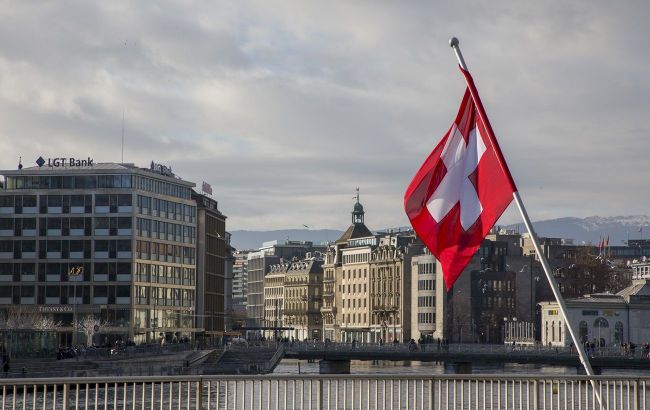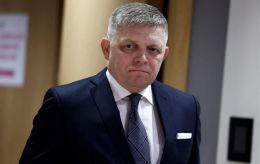Switzerland joins 12th EU sanctions package against Russia
 Illustrative photo (Photo: Getty Images)
Illustrative photo (Photo: Getty Images)
Switzerland today, on January 31, has made the decision to join the 12th package of sanctions imposed by the European Union against Russia, according to the government of Switzerland.
"The Federal Council adopted further sanctions against Russia at its meeting on 31 January. This is in response to Russia's ongoing military aggression against Ukraine. In doing so, the Federal Council joins the European Union (EU), which adopted its 12th package of sanctions in December 2023," the statement reads.
It is noted that the new measures will take effect on February 1. Earlier on December 21, Switzerland added 147 individuals and entities to its sanction lists.
Ban on Russian diamonds and additional control over commodity trade
Among the new measures is a phased ban on the purchase and import of Russian diamonds. Switzerland is thus aligning with the measures agreed upon at the G7 summit on December 6, 2023, aiming to deprive Russia of this significant source of income.
The authority responsible for implementing these measures in Switzerland will work with relevant sectors to ensure coordination of new restrictions at the international level and their effective implementation.
Other items subject to the ban
Prohibitions are imposed on the import of certain goods that bring significant revenue to the Russian state. For example, the purchase and import of iron and liquefied petroleum gas from Russia are banned. The list of prohibited goods that could strengthen Russia's military-technical potential or enhance the Russian industrial sector is also expanding.
These new measures prohibit the export and sale of chemicals, lithium batteries, certain engines for drones, as well as machinery and machine parts to Russia. Moreover, more organizations have been added to the list of companies subject to restrictions on dual-use goods (goods with both civil and military applications).
Measures in the financial sector and service sector
In the financial sector, citizens of Russia and individuals residing in Russia will be prohibited from controlling companies in Switzerland that provide cryptocurrency services. Additional measures are in place to support compliance with price restrictions on Russian crude oil and petroleum products and to counter attempts to bypass the restrictions.
Market participants are now required to exchange detailed price information with each other and with competent authorities upon request. New reporting and permit requirements will be introduced to monitor the sale of tankers that could be used to circumvent oil price restrictions.
In the service sector, there is currently a ban on providing Russian companies with enterprise management software and industrial project design and production software. The Federal Council has made exceptions for providing services to Russian subsidiaries of Swiss companies.
What Switzerland has decided to abstain from
The 12th package of EU sanctions also includes a requirement for reporting fund transfers from EU-based companies controlled by Russians or entities established in Russia. However, the Federal Council has decided not to implement this requirement at present.
Instead, it has tasked the Federal Department of Economic Affairs, Education, and Research, in collaboration with the Federal Department of Finance, to study the question of whether the reporting requirement should be introduced in Switzerland and how it can be structured. In particular, they will consider how the reporting requirement for transfers to third countries can bring the maximum benefit for the effective implementation of sanctions in Switzerland.
13th package of sanctions against Russia
The European Union has initiated discussions on a new package of sanctions, which it intends to finalize by February 24, 2024.
Possible sanctions were discussed on January 18 at a meeting of the bloc's ambassadors, where member states debated on how best to support Kyiv in the long term.
According to Politico, Russian aluminum products are among the goods that could face an embargo under the new package of restrictions. Specifically, Czechia aims to include restrictions on the movement within the Schengen zone for Russian diplomats.

